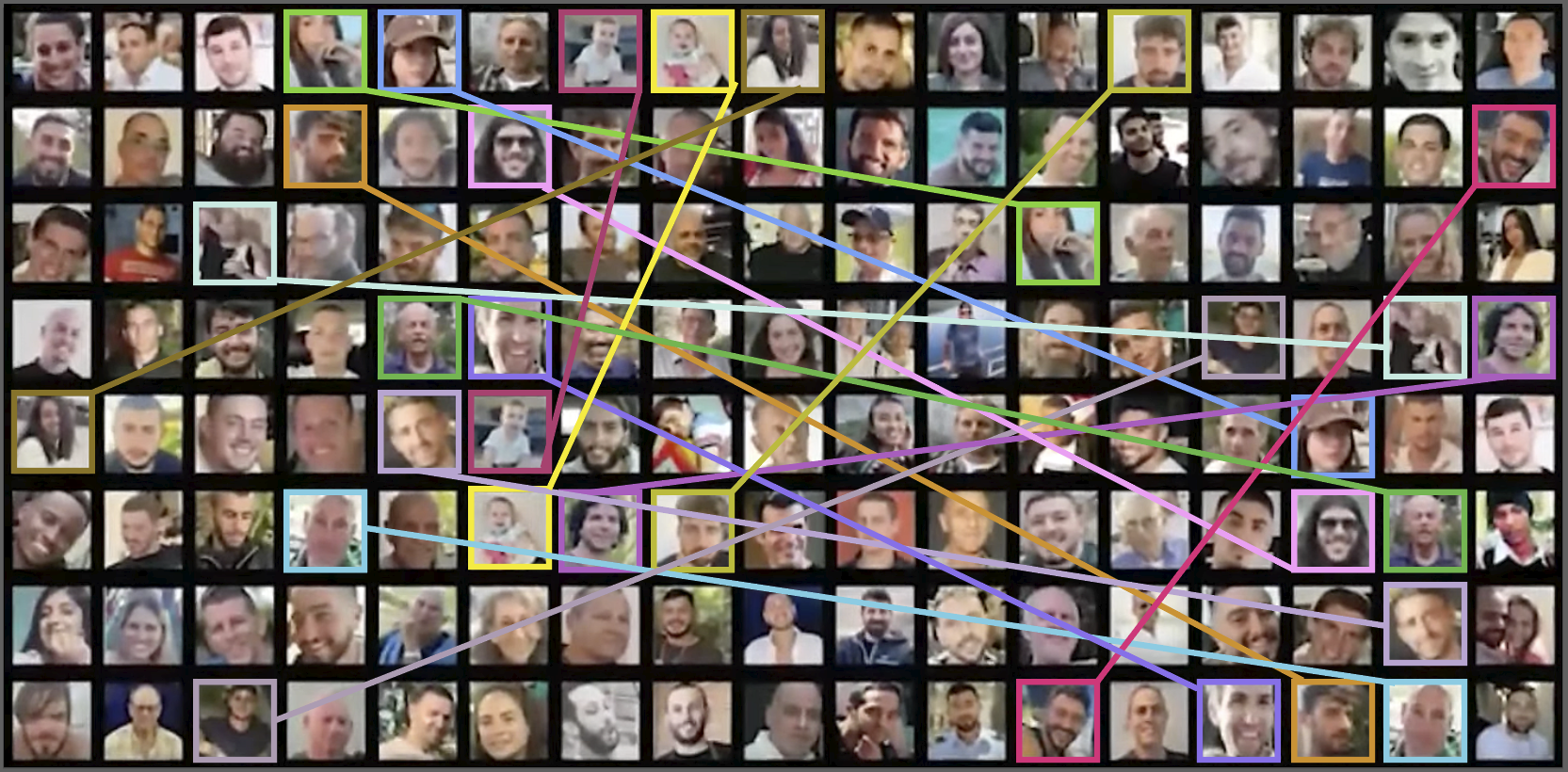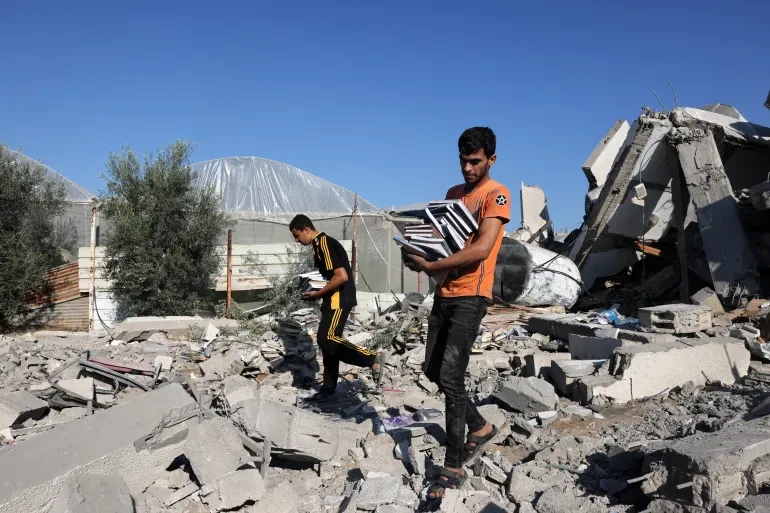09.30.24
Jeena Shah (@jeenashahesq) is an Associate Professor at the CUNY School of Law
As Ntina Tzouvala has recently argued on this blog, a political-economic understanding of genocide can help explain what is unfolding in Gaza. It shows that the genocide should not be seen as an exceptional or isolated event, but as a violent tool to expedite what decades of settler apartheid couldn’t achieve on its own. It also elucidates why the solidarity efforts of the past two decades, particularly centered around “boycott, divestment, and sanctions” (BDS), transcend mere symbolism. Indeed, as recent student uprisings have stressed, BDS stands as a crucial instrument that, had it been more widely employed by the international community in support of broader Palestinian resistance, could have potentially averted the ongoing genocide.
Such calls for sanctions, however, may seem to stand in tension with another position widely held on the left: the condemnation of the United States’ deployment of economic sanctions as effectively neo-imperial warfare by other means. These justified critiques frequently overlook the important role that sanctions have played, first in support of the anti-apartheid struggle in South Africa, and today in support of Palestinian liberation. This unintentional oversight has, unfortunately, provided fodder for those who accuse current BDS campaigns of unfairly singling out Israel as a target, while ignoring the multitude of other states that commit grave human rights abuses.
However, as I argue in a pair of forthcoming articles, we can resolve this apparent tension by looking closely at how anticolonial resistance movements of the 1960s and 1970s analyzed this dual role of “sanctions” — as both a neoimperial tool and decolonial tool. As they attempted to transform international law from a structure whose raison d’etre was justifying and managing imperialism to one that centered on self-determination – what I call “anticolonial lawmaking” – they developed a robust right of self-determination that offers a legal framework for understanding the role of sanctions in both maintaining and undermining imperialism.
This right of self-determination went beyond merely seeking political independence from direct colonial rule; it also aimed to safeguard that independence from other forms of imperial domination. While independence from direct colonial rule requires divestment and sanctions of distinctly colonial relations, independence from imperial domination forbids the use unilateral economic sanctions against formerly colonized states by former colonizing powers and their settler states. To ascertain the difference between situations demanding the imposition of sanctions and situations prohibiting them, then, anticolonial lawmaking requires an analysis of the political economic operation of colonialism, settler apartheid, and neoimperialism. Sanctions, on this view, should not be seen as a stable, immutable tool, but as protean, operating differently depending on the political economic context.
Sanctions Against Colonial Structures
“Colonialism” is the process by which a state unilaterally annexes a territory to which a people belong without the responsibility to govern or provide for such a people on par with the state’s own citizens. As Prabhat Patnaik and Utsa Patnaik have argued, the political-economic function of colonialism is to achieve a one-way transfer of wealth in the form of land, labor, or money from the colony to the metropole. This is often referred to as the “colonial drain.” Central to this process is the forced or coerced separation of a people from the land to which they belong in order to ensure the metropole’s access to the land and to destroy the colonized people’s ability to sustain themselves, requiring them to resort to working as laborers for the metropole.
In a globally integrated economy, colonizing powers primarily benefit from such extraction through support from the international community via trade, investment, and finance. Anticolonial lawmaking thus understood that the independence from colonial rule necessitated a duty of all states to cease all relations, including economic relations, that help the colonial power benefit from their colonized territory. Rather than serve to punish, retaliate, or deter, such sanctions aim to prevent the colonizing powers from economically benefiting from the land and peoples under its colonial rule, in order to undercut the rationale for such rule to persist.
How does this perspective apply to systems of apartheid? While the conventional understanding of apartheid today typically confines it to a human rights concern of “institutionalized racial discrimination,” anticolonial lawmaking viewed settler apartheid as a structure that arises from the evasion of decolonization and continues as a variant of colonialism—and thus a proper target for decolonizing sanctions.
Settler apartheid states initially gain sovereign power by virtue of an imperial power’s termination of its colonial rule. But not wanting to include a majority indigenous population in its polity on equal terms — and where genocide and removal are no longer politically viable — apartheid is all that remains as the preferred method of settler rule. At first, settler states engage in what is known as petty apartheid: the formally enshrined hierarchy of citizenship in the settler state, maintained by legally-enforced segregation. Under petty apartheid, the settler state effectively creates a colony within its borders, through which harms like racialized wage differentials or the concentration of racialized indigenous peoples in segregated areas are better understood as wealth and land extraction.
However, to avoid criticism of the fundamentally anti-democratic nature of petty apartheid, the settler state gradually moves towards grand apartheid: the creation of bantustans, or semi-sovereign structures within the landmass of the colonized territory. By expelling the indigenous peoples to bantustans, the settler state thereby denationalizes them and can thus deny them equal political power or provisions without running afoul of democratic norms. Since these newly created states cannot exercise the full powers of sovereign statehood, and are instead circumscribed by the settler state’s authority, bantustans are best understood as colonies of the settler state. Petty apartheid and grand apartheid thus function together to maintain distinctly colonial relations. And sanctions that target such relations aim to end the settler apartheid state’s ability to benefit from both its petty and grand apartheid, a step towards the ultimate goal: reunification of the entire landmass as a singular sovereign state with lands restored to the dispossessed indigenous peoples and full equality.
Neo-Imperialism and Sanctions
Gaining freedom from such colonial structures is, while necessary to self-determination, far from sufficient. While the era of decolonization ended the dominance of a particular mode of imperialism, i.e. colonialism, the post-war era also witnessed the United States and Western Europe fully reassemble imperialism by the 1990s without the need for colonialism. They did so by deploying international economic law to impose a singular political economy of capitalism upon all newly decolonized states – a political economy that inherently requires imperialism.
The contemporary reconstruction of European imperialism in the form of neo-imperialism is only legible through an understanding of capitalism’s inherent need for imperialism to ensure its continued operation. As Patnaik and Patnaik explain, without imperialism’s facilitation of ongoing access to cheap land and labor and new markets in what becomes constructed as the periphery, the inherent tendency of the rate of capital accumulation in the metropole to fall would either cause inflation, which would reduce the value of the currency in which capitalists’ wealth is held, or undermine the global monetary system, which would in turn further impede capital accumulation. In other words, imperialism is necessary to prevent capitalism from descending into crisis.
Prior to the widespread political decolonization won by anticolonial resistance movements in the postwar era, imperialism primarily served this function through colonial taxation, an efficient mechanism for direct wealth extraction and to ensure ongoing access to cheap land and labor and new, captive markets. After decolonization, however, the United States and Europe would instead need to take advantage of the economic vulnerability of newly decolonized states to secure such extraction. These states emerged from colonization without reparations and with overwhelming debt inherited from colonial rule. On top of this, they were left with a colonial structuring of production on their landmasses, primarily through large-scale plantation agriculture and extractive industries, that would disadvantage them in global trade relations. Though newly decolonized states tried to reverse these patterns of production to assert economic independence, these colonialism-structured economies were further entrenched through the US-led Green Revolution and the asymmetries imposed by the 1947 General Agreement on Tariffs and Trade (GATT).
These economic vulnerabilities were most dramatically exploited by the United States in manufacturing the Third World Debt Crisis of the 1980s, which caused such rapid capital flight from newly decolonized states that it was, as Joseph Halevi and Yanis Varoufakis describe, “more effective” in breaking the efforts of newly decolonized states to assert economic independence “than any military operation.” Specifically, debt replaced the system of colonial taxation to become the chief mechanism by which the U.S., along with other former colonizing powers, imposed a new form of imperialism.
Like colonial taxation, debt allows lenders to dictate the pattern of production on the debtor’s landmass. In the aftermath of the 1980s Third World Debt Crisis, the IMF and World Bank imposed conditions on loans that required borrowing states to allow for the free entry of foreign capital. And once let in, borrowing states needed to prevent sudden outflows of foreign capital that would throw their economies into acute crisis. As a result, debtor states were compelled to move from responding to the needs of local populations to maintaining “creditworthiness” – meaning imposing policies oriented towards the needs of foreign capital – so as not to upset the confidence of the investors. This system of control was reinforced by trade and investment agreements that former colonized countries entered into in order to participate in the global economy. Together, these mechanisms have compelled formerly colonized states to implement measures that have helped maintain U.S./EU access to cheap land and labor and captive markets.
To sustain this imperialist framework, the compliance of otherwise recalcitrant states is ensured through the use of disciplinary mechanisms, such as warmaking and sanctions. Considered more “efficient” than warmaking, sanctions have been the most effective when designed to exploit the current system of debt-based imperialism in a dollarized global economy. Specifically, U.S./EU sanctions against formerly colonized states have been able to fully exploit the asymmetrical nature of dollarized debt-based imperialism by taking the form of financial and secondary sanctions, resulting in long-lasting catastrophic consequences.
In seeking freedom from such imperial domination, anticolonial lawmaking initially sought to reconstruct the global political-economic order in a way that would impede their subjugation. Attempting to create a “New International Economic Order,” anticolonial lawmaking identified the imperialist metropole-periphery relations embedded in the global political economy as the source of their ongoing underdevelopment and shared a common goal of shedding their peripheral status. The 1980s Third World Debt Crisis defeated this project.
In the face of this loss, newly decolonized states instead emphasized the importance of protections to their *juridical *sovereignty from the disciplinary mechanisms deployed by the capitalist metropoles to enforce the imperialist metropole-periphery relationship. Legal protections that attach to statehood — specifically, sovereign equality and non-intervention — were thus redefined as protections against imperialist encroachment, including specifically economic sanctions imposed by former colonizers and their settler states like the U.S.
Prohibitions on economic sanctions cannot, then, be understood apart from the role that they play in a particular global political economy of a given time. Such an analysis reveals why the right of self-determination prohibits the unilateral deployment of economic sanctions against formerly colonized states, even where those sanctions are purportedly deployed to protect human rights.
***
The foregoing analysis, which I lay out in greater detail in my forthcoming articles, attempts to recover a central insight from the period of anticolonial lawmaking: that the right of self-determination offers a legal framework for understanding the role of sanctions in both maintaining and undermining imperialism. With this in hand, the left need not be reticent in its calls for BDS against Israel and other colonial and settler apartheid powers, while still condemning the imposition of such economic coercion against formerly colonized states.



